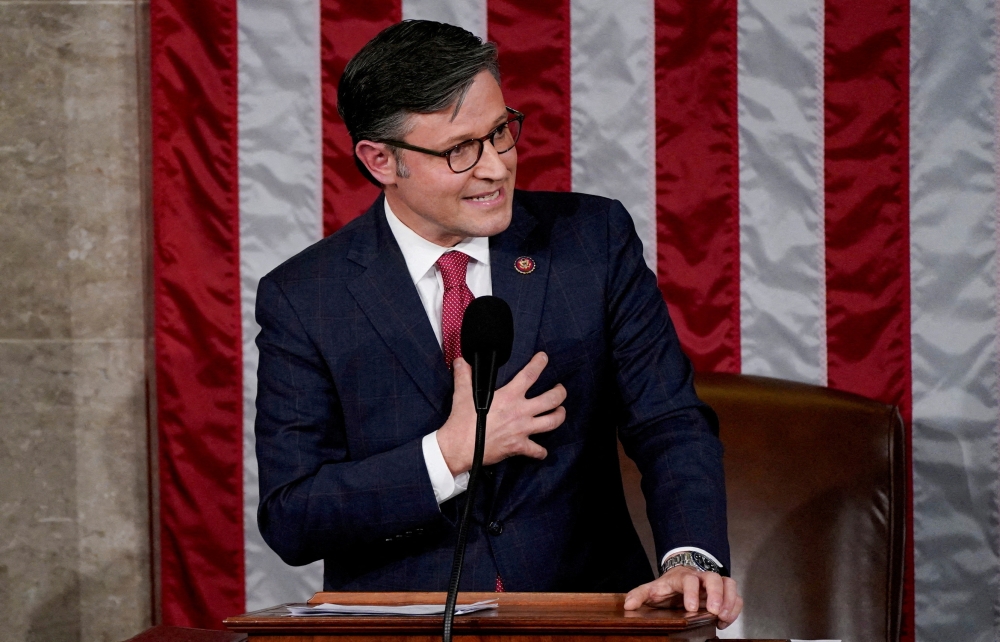WASHINGTON, Nov 14 — US House Speaker Mike Johnson is expected to brave opposition from fellow Republicans and rely on Democratic votes today in a risky tactic to avert a government shutdown.
The House of Representatives has scheduled an afternoon vote on a stopgap spending bill that would extend government funding beyond November 17, when it is due to run out.
Facing opposition from some right-wing Republicans, Johnson has opted to bring the bill up directly for a vote on the House floor. That allows him to avoid a potential procedural roadblock, but requires a two-thirds vote for passage—meaning Democratic support will be needed.
“This will have to be a bipartisan measure to prevent the government from shutting down,” Johnson said on Fox News.
To avert a fourth shutdown in a decade, the Republican-controlled House and Democratic-led Senate must agree on spending legislation that President Joe Biden can sign into law before current funding for federal agencies expires on Friday.
Democrats in the House and Senate have offered tentative support for Johnson’s plan, saying they are pleased that the legislation does not appear to include controversial policies on abortion or other hot-button social issues.
But the bill lacks the steep spending cuts and border-security measures that many Republicans have sought. Representative Kevin Hern, who heads a group of conservative Republicans, estimated 30 to 40 of them could vote against it.
Other Republicans said they would support it.
“I think the greater problem comes with a shutdown,” said Representative Drew Ferguson.
Congress is in its third fiscal standoff this year, following a months-long spring impasse over the more-than-$31 trillion in US debt, which brought the federal government to the brink of default.
The ongoing partisan gridlock led Moody’s on Friday to lower its credit rating outlook on the US to “negative” from “stable,” as it noted that high interest rates would continue to drive borrowing costs higher.
Johnson had little senior congressional leadership experience before being chosen speaker less than three weeks ago.
With a slim 221-213 majority, he can afford to lose no more than three party votes on legislation that Democrats oppose.
But Democratic support remains uncertain.
Senate Democratic Chuck Schumer gave only a tentative welcome to the proposal.
“For now, I am pleased that Speaker Johnson seems to be moving in our direction,” he said.
Johnson’s bill would extend funding for military construction, veterans benefits, transportation, housing, urban development, agriculture, the Food and Drug Administration and energy and water programs through Jan. 19. Funding for all other federal operations - including defense - would expire on Feb. 2.
Johnson’s political strategy echoes the approach taken by his predecessor, Kevin McCarthy, who relied on Democratic votes to pass a stopgap spending bill on Oct 1. That angered some Republicans, who forced him out of his job a few days later.
Republicans say the new speaker is unlikely to suffer the same fate as McCarthy. But hardliners have been quick to see the parallel.
“Here we are. We’re doing the same thing,” Representative Chip Roy told reporters. — Reuters




















